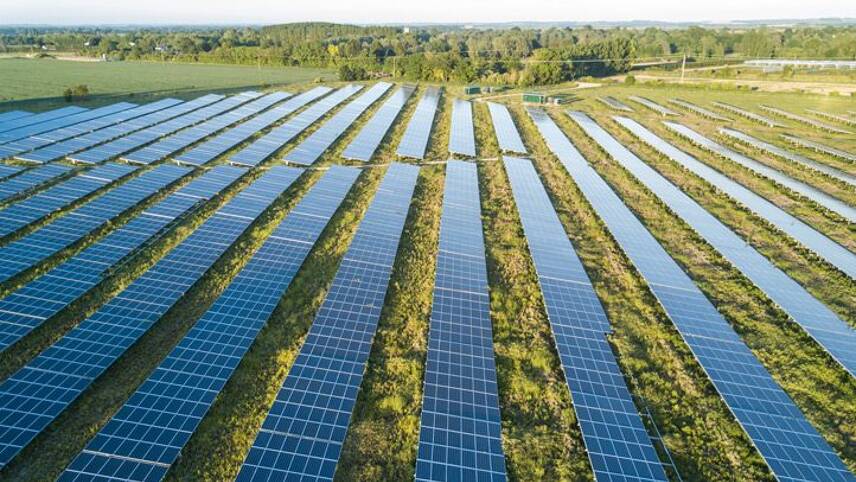Register for free and continue reading
Join our growing army of changemakers and get unlimited access to our premium content

Concerns had been raised as to placing the storage system onto farmland. Stock image
Development consent has been given for Wirsol Energy and Hive Energy’s £450m Cleve Hall solar farm, located outside of Faversham close to the village of Graveney in Kent. BEIS has also confirmed that a 50MW electrical storage and connection infrastructure located on the site has also been approved.
Green groups had raised concerns that the near-900-acre development could harm the natural environment in the area, in part because of the energy storage system.
Friends of the Earth supports it while Greenpeace has joined the Campaign to Protect Rural England and the local Green Party to oppose the “industrialising of the countryside”. Additionally, The Telegraph has reported that campaigner and residents are concerned that the mooted energy storage system “cause an explosion on the scale of a small nuclear bomb”.
The Planning Inspectorate’s chief executive, Sarah Richards said: “The Planning Inspectorate is committed to giving local communities the opportunity of being involved in the examination of projects that may affect them. Local people, the local authority and other interested parties were able to participate in a six-month-long examination. The Examining Authority listened and gave full consideration to local views before making their recommendation.”
The subsidy-free project would begin next year, with electricity generation expected to start by 2023. The 350MW farm would feature almost 900,000 solar panels across 900 acres of farmland.
The developers claim that the farm would generate enough renewable electricity to power 91,000 homes, would reduce UK carbon emissions by 68,000 tonnes annually and generate £1m annually for the Kent and Swale councils.
Commenting on the announcement, the Solar Trade Association’s (STA) chief executive Chris Hewett said: “Today the Government has shown that it recognises the vital contribution solar can make to Britain’s energy mix. This is a major milestone on the road towards a UK powered by clean, affordable renewables.”
“Solar has a significant role to play in boosting the economy in the wake of the coronavirus crisis. With the right policies we can expect to see an 8GW pipeline of solar projects unlocked and rapidly deployed, swiftly creating a wealth of skilled jobs and setting us on the path towards a green recovery.”
Solar success
Solar use in the UK broke an all-time peak generation record last month. At 12:30 on Monday 20 April, solar generation reached a peak of 9.68GW, according to the Sheffield Solar live PV generation tracker. The previous record was set at 9.55GW recorded on 13 May 2019. At the time of the peak, solar was meeting almost 30% of UK electricity demand.
The STA is expecting the Covid-19 outbreak to dampen forecasted growth in unsubsidised large scale solar and commercial rooftops in 2020.
Once the pandemic is overcome, however, the market for renewables in the UK is likely to re-gather momentum, as shorter-term policy measures are developed and implemented to bolster the long-term net-zero target. Meeting the UK’s target, the CCC has repeatedly concluded, will require renewable energy generation capacity to quadruple within 30 years.
There is approximately 13.5GW of solar currently deployed in the UK, of which 99.95% are ‘small-scale’ installations. It is anticipated that the UK’s solar capacity could reach 27GW by 2030, following the Government’s decision to make the technology, along with onshore wind projects, eligible to compete for contract auctions.
Matt Mace


Hello, Nice topic , after reading your article i get more knowledge and i am sure this is one of the best article you write. Keep it up.
For More Information:- solar panels uk | spray foam insulation uk